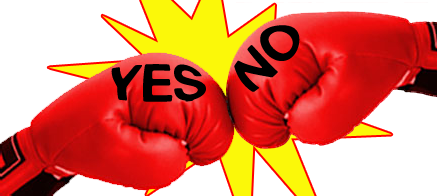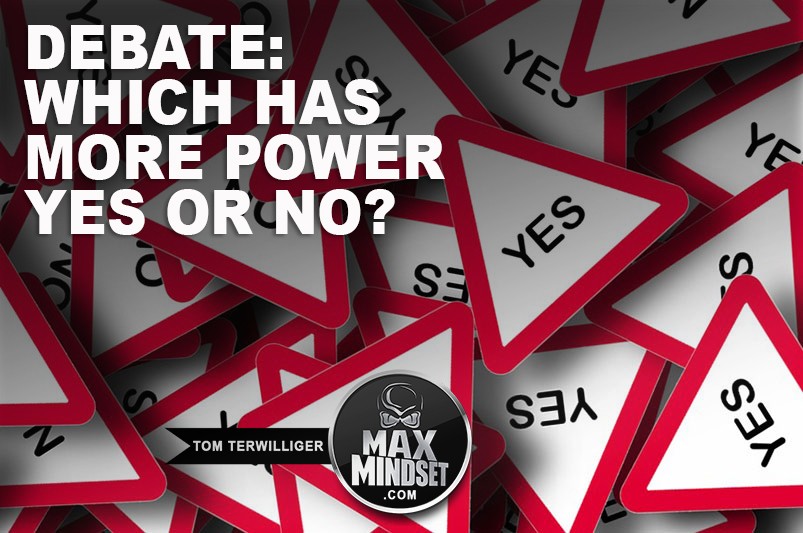 Which has more power YES or NO? This seemingly inconsequential linguistics debate has been raging in our minds since the inception of our consciousness. When I say debate I mean of course, “Do I say ‘yes?’ Or do I say ‘no?'” And of course the consequences can be anything but inconsequential.
Which has more power YES or NO? This seemingly inconsequential linguistics debate has been raging in our minds since the inception of our consciousness. When I say debate I mean of course, “Do I say ‘yes?’ Or do I say ‘no?'” And of course the consequences can be anything but inconsequential.
Much of the time the debate is quickly resolved based on instinct, a desire to avoid pain or self preservation. We primitively react with “no!” We use “no” to express a gut impulse resulting from an emotion or feeling rather than using it as a proactive approach to a question or opportunity.
“No” is perceived as harsh, scary, and even rude and it’s without a doubt one of the least desirable audible reactions to hear when genuine need is in question. As a child you likely heard the word “no” more than any other word in your language just like I did and it always had a negative emotion attached to it.
The first step towards changing our intuitive “no” reaction into a positive reaction is to dig deep within. Why are we responding to a situation, request, or personal struggle with knee-jerked “no?”
Take a step back, realize why you feel the need to react with “no.” How can you change your immediate impulse to react with a negative and replace it with a carefully calculated act of “yes?” For instance, you may be faced with a family or work situation to which you immediately react with a “no;” possibly a co-worker presents a suggestion which to you may seem unorthodox or risky.
Before allowing an irretrievable “no” to bubble automatically to the top of your consciousness and spew out of your mouth, think of the positive feedback you may be able to provide with a thoughtful pause. This may result in an unforeseen productive outcome or a discussion offering compromise. This can change your negative “no” into a positive and productive engagement with the co-worker, partner or loved one.
In order to battle our natural “no” impulse we have to realize that anger or guilt should not influence our quest to help others or help ourselves. A positive result is born of positive action. “No” tends to stifle these actions, keeping us from what we truly desire and deserve. Offering a moment of thought before a negative reaction can completely change the outcome of the opportunities presented to you.
All this only applies however, if you have not already developed the habit of saying “yes” to everything even when you know you should say “no.” That’s about personal power… a topic for another day.

